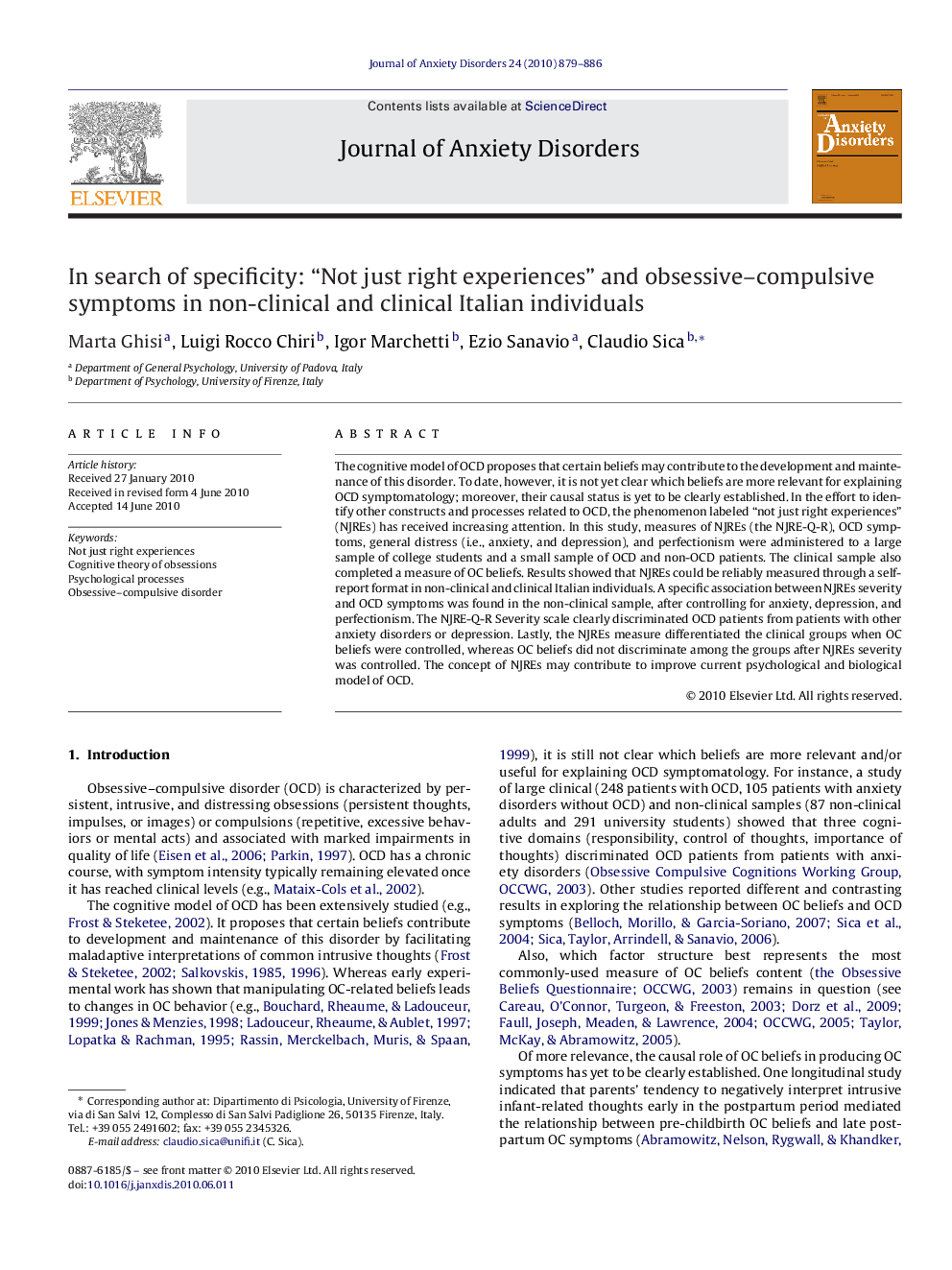| Article ID | Journal | Published Year | Pages | File Type |
|---|---|---|---|---|
| 909813 | Journal of Anxiety Disorders | 2010 | 8 Pages |
The cognitive model of OCD proposes that certain beliefs may contribute to the development and maintenance of this disorder. To date, however, it is not yet clear which beliefs are more relevant for explaining OCD symptomatology; moreover, their causal status is yet to be clearly established. In the effort to identify other constructs and processes related to OCD, the phenomenon labeled “not just right experiences” (NJREs) has received increasing attention. In this study, measures of NJREs (the NJRE-Q-R), OCD symptoms, general distress (i.e., anxiety, and depression), and perfectionism were administered to a large sample of college students and a small sample of OCD and non-OCD patients. The clinical sample also completed a measure of OC beliefs. Results showed that NJREs could be reliably measured through a self-report format in non-clinical and clinical Italian individuals. A specific association between NJREs severity and OCD symptoms was found in the non-clinical sample, after controlling for anxiety, depression, and perfectionism. The NJRE-Q-R Severity scale clearly discriminated OCD patients from patients with other anxiety disorders or depression. Lastly, the NJREs measure differentiated the clinical groups when OC beliefs were controlled, whereas OC beliefs did not discriminate among the groups after NJREs severity was controlled. The concept of NJREs may contribute to improve current psychological and biological model of OCD.
Research highlights▶ In the effort to identify other constructs and processes related to OCD, the phenomenon labeled “not just right experiences” (NJREs) has received increasing attention. ▶ Measures of NJREs (the NJRE-Q-R), OCD symptoms, general distress (i.e., anxiety, and depression), and perfectionism were administered to a large sample of college students and a small sample of OCD and non-OCD patients. ▶ A specific association between NJREs severity and OCD symptoms was found in the non-clinical sample, after controlling for anxiety, depression, and perfectionism. ▶ The NJRE-Q-R Severity scale clearly discriminated OCD patients from patients with other anxiety disorders or depression. Moreover, the NJREs measure differentiated the clinical groups when OC beliefs were controlled, whereas OC beliefs did not discriminate among the groups after NJREs severity was controlled. ▶ The concept of NJREs may contribute to improve current psychological and biological model of OCD.
